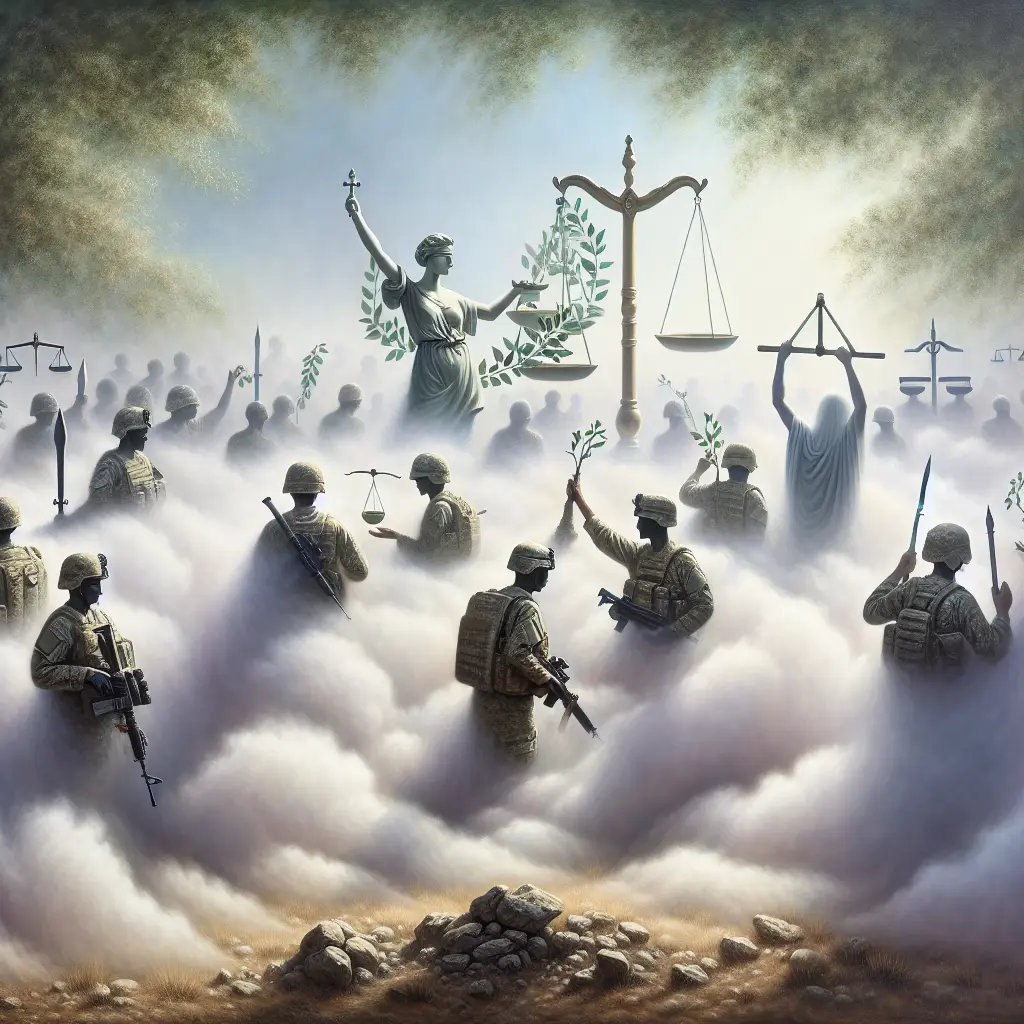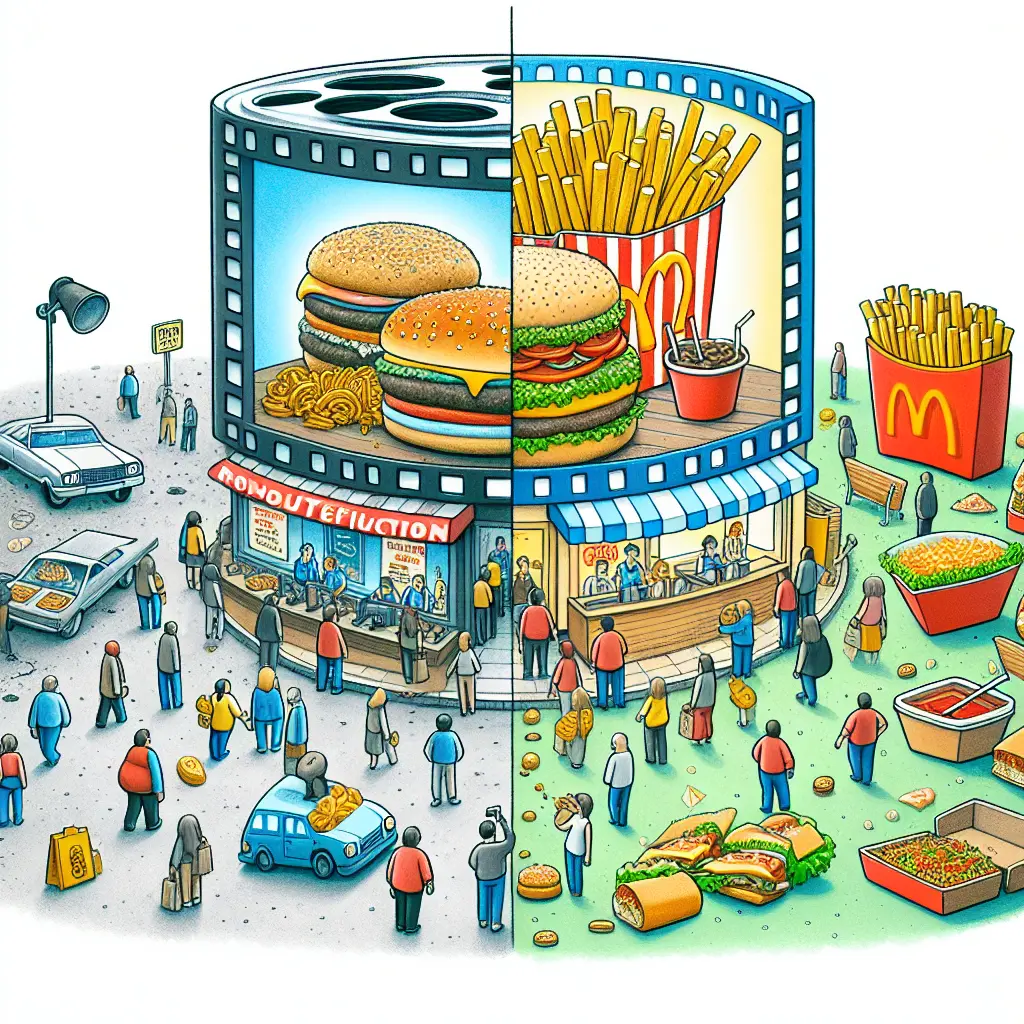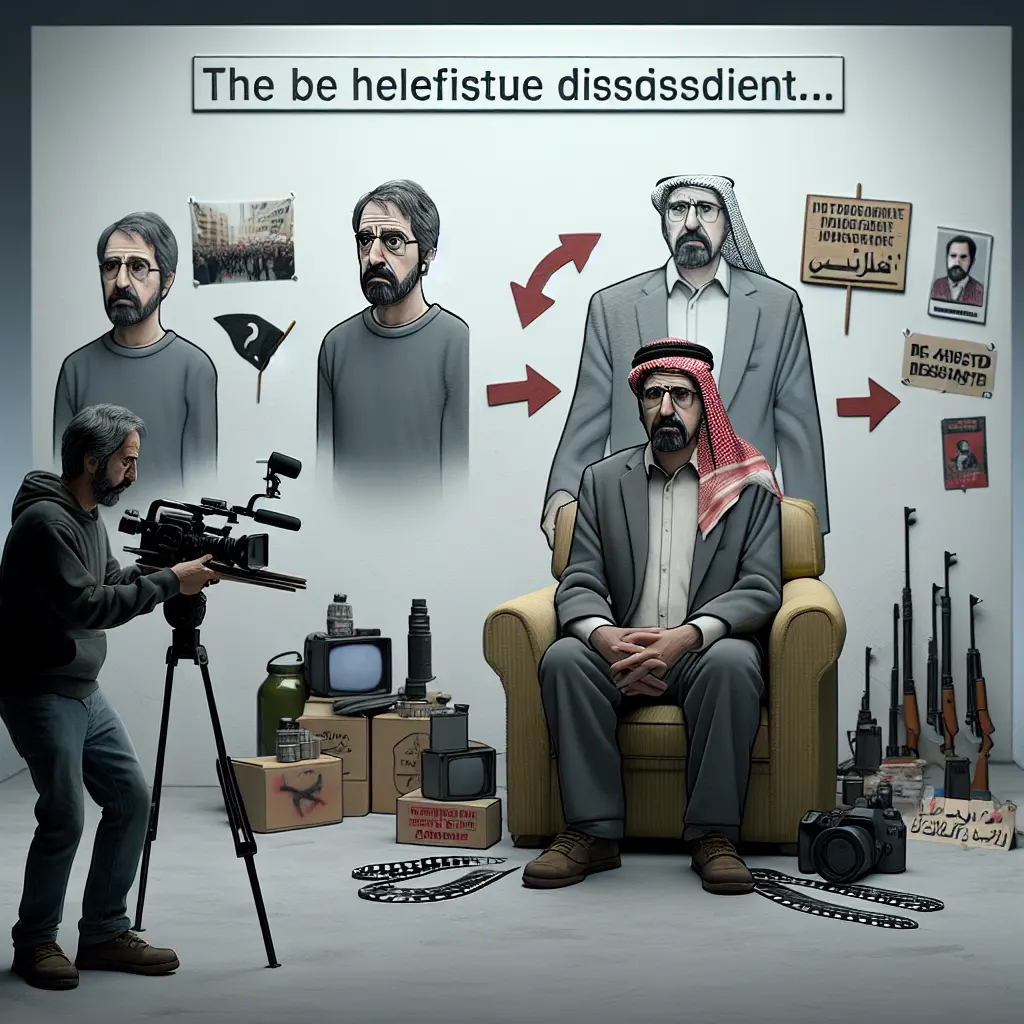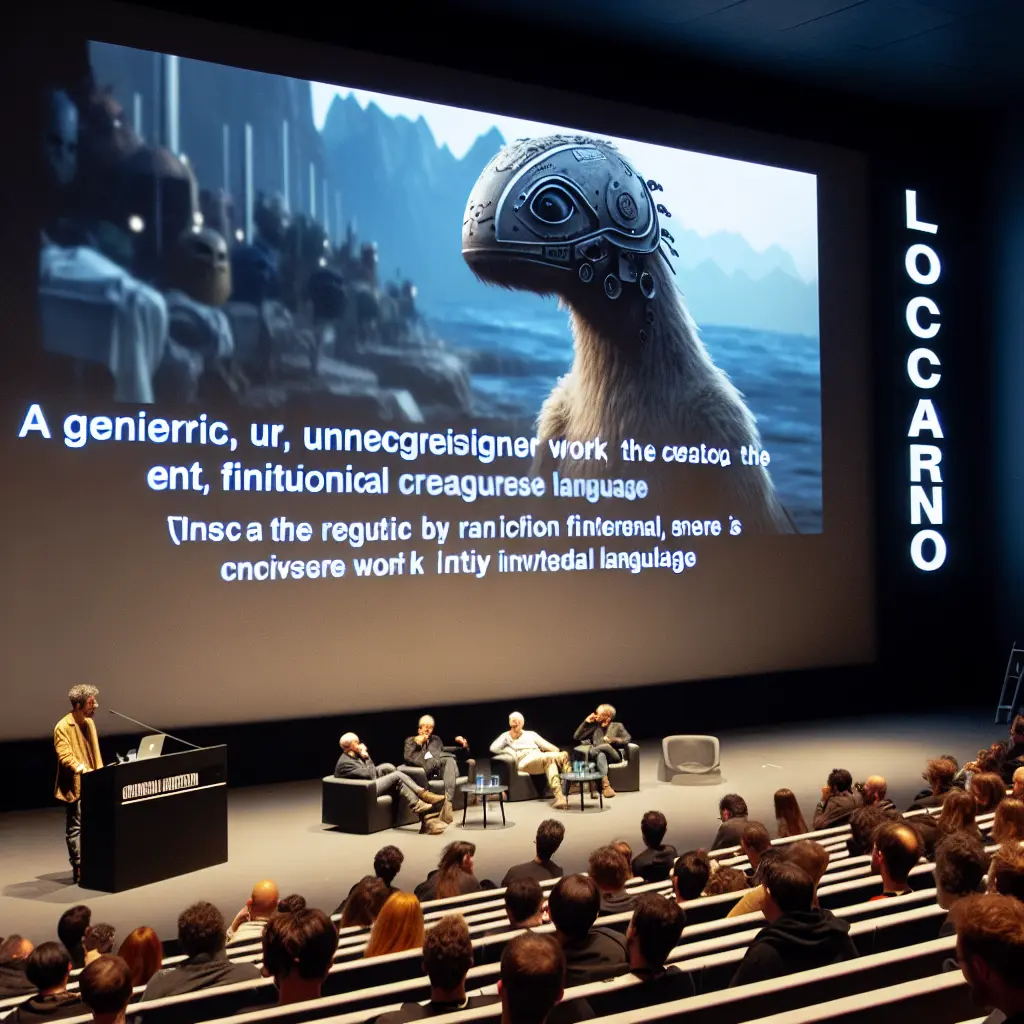In the realm of impactful war documentaries, few have left as profound a mark as Errol Morris's "The Fog of War." This military ethics documentary is not just a cinematic masterpiece; it is a transformative exploration of ethical dilemmas in war, offering viewers a unique lens to understanding military ethics. Through the insightful reflections of former U.S. Secretary of Defense Robert S. McNamara, "The Fog of War" delves deep into the ethical reflections in documentaries, making it an indispensable tool for anyone seeking to grasp the complexities of military decisions and the ethical conundrums they entail.
The film's brilliance lies in its ability to provide The Fog of War insights while simultaneously challenging and expanding viewers' perspectives on war ethics. Errol Morris films are renowned for their ability to provoke thought and debate, and this documentary is no exception. It stands as one of the most influential documentaries on war, compelling audiences to confront their own understanding of military ethics through film. As a must-watch war documentary, it bridges the gap between documentary film and ethics, presenting lessons from The Fog of War that remain relevant in today's geopolitical landscape.
"The Fog of War" analysis reveals how transformative documentaries can be in reshaping public discourse around complex ethical issues. As we explore this Errol Morris documentary impact, we uncover not just a film, but a crucial conversation starter on the ethical implications of war. Join us as we delve deeper into the insights offered by this compelling documentary, examining its role in broadening our understanding of war ethics and military decisions.
Errol Morris's "The Fog of War" stands as a cornerstone in the genre of military ethics documentaries, compelling audiences to reconsider their perceptions of war and its ethical dimensions. This transformative documentary is not merely a retelling of historical events; it is a deep dive into the ethical dilemmas faced by military leaders and policymakers, offering profound insights into military decisions and their broader implications.
At the heart of "The Fog of War" is an exploration of the complex ethical dilemmas that arise in wartime. Through the lens of former U.S. Secretary of Defense Robert S. McNamara, the film delves into the intricacies of decision-making in conflict situations. McNamara’s reflections provide a candid look at the moral quandaries that leaders face, making the documentary an invaluable resource for understanding military ethics.
Exploring Ethical Dilemmas in War
Case Study: The Vietnam War
The film extensively covers McNamara's role during the Vietnam War, a conflict fraught with ethical challenges. It highlights how strategic decisions, such as bombing campaigns and troop deployments, were influenced by both political pressures and moral considerations. This case study serves as a powerful example of how ethical reflections in documentaries can offer lessons from The Fog of War relevant to today's military conflicts.
Lesson from History: Cuban Missile Crisis
Another pivotal moment examined in the documentary is the Cuban Missile Crisis. McNamara recounts the critical decision-making processes and the ethical implications of choices made under extreme pressure. This historical context enhances the film's impact, making it one of the most influential documentaries on war by showcasing the thin line between calculated risk and moral responsibility.
"The Fog of War" is part of a broader movement of transformative documentaries that have reshaped public discourse on war ethics. Its influence extends beyond just being an engaging narrative; it serves as an educational tool that bridges the gap between documentary film and ethics.
Errol Morris's Unique Approach
Errol Morris films are renowned for their ability to provoke thought and ignite debate. In "The Fog of War," Morris employs his signature style—characterized by incisive interviews and archival footage—to create a narrative that is both compelling and informative. This approach not only captivates audiences but also encourages them to engage with the ethical dilemmas presented.
Understanding War Ethics Through Film
Impact on Public Discourse
The documentary has been instrumental in sparking discussions around the moral dimensions of military decisions. By providing viewers with The Fog of War insights, it challenges preconceived notions and encourages a deeper understanding of war ethics through film. This impact is reflected in academic circles and public forums, where it is frequently cited as a critical resource for military ethics exploration.
One of the significant contributions of "The Fog of War" is its ability to enhance understanding war ethics through film. It transcends traditional documentary storytelling by intertwining historical analysis with ethical inquiry, offering viewers a comprehensive look at military decisions.
Ethical Reflections in Documentaries
The film serves as a platform for ethical reflections, prompting viewers to consider the moral implications of actions taken during wartime. This reflective aspect is crucial for fostering a more nuanced understanding of military ethics, making "The Fog of War" a must-watch war documentary for anyone interested in this field.
The Role of Personal Narratives
McNamara's personal reflections add depth to the documentary, humanizing the often abstract concepts of war ethics. His candid admissions and self-reflection provide a rare glimpse into the mindset of a key decision-maker, making the ethical dilemmas more relatable and understandable for audiences.
The enduring relevance of "The Fog of War" lies in its ability to impart lessons that remain pertinent in today's geopolitical landscape. As conflicts continue to arise around the world, the documentary's insights into ethical decision-making are invaluable for both policymakers and the general public.
Current Geopolitical Relevance
In light of recent global tensions, such as the ongoing conflict in Ukraine, the lessons from The Fog of War are more relevant than ever. The documentary provides a framework for analyzing current military strategies and their ethical ramifications, underscoring the importance of considering moral consequences in modern warfare.
Educational Impact
Beyond its influence on public discourse, "The Fog of War" has become a staple in academic settings, particularly in courses on military history and ethics. It serves as an essential resource for students and educators seeking to understand the complexities of war and the ethical challenges it presents.
Lessons from The Fog of War
In conclusion, Errol Morris's "The Fog of War" remains a pivotal work in the realm of impactful war documentaries. Through its comprehensive exploration of ethical dilemmas and its transformative power, it continues to shape our understanding of military ethics and influence discussions on the moral dimensions of warfare.
In conclusion, Errol Morris's "The Fog of War" serves as a monumental exploration of military ethics through the lens of historical events and personal reflection. This documentary offers:
Profound Ethical Insights: By examining the decision-making processes during the Vietnam War and Cuban Missile Crisis, it reveals the intricate moral quandaries faced by military leaders.
Influence on Public Discourse: The film has sparked significant debate around the moral dimensions of military decisions, making it a key resource in both academic settings and public forums.
Educational Impact: Its use in courses on military history and ethics underscores its value as an educational tool, providing essential insights for understanding war ethics.
Relevance to Current Conflicts: The lessons from "The Fog of War" continue to resonate in today's geopolitical climate, highlighting the importance of ethical considerations in modern warfare.
Through McNamara’s candid reflections and Morris's compelling narrative style, "The Fog of War" transcends traditional documentary storytelling to offer a nuanced understanding of military ethics. This documentary not only enriches our knowledge but also prompts critical reflection on the moral implications of wartime decisions.
As we navigate the complexities of contemporary global conflicts, let this film inspire us to consider the profound impact of ethical decision-making in warfare. I invite you to share your thoughts on how "The Fog of War" has influenced your perspective on military ethics. Let's engage in a meaningful discussion about the moral dimensions of war and the lessons we can learn from history.
Thank you for reading and reflecting with me on this transformative documentary. Until next time, may your journey towards understanding be as enlightening as McNamara's reflections.






_netflix_documentary.webp)



Leave a Comment